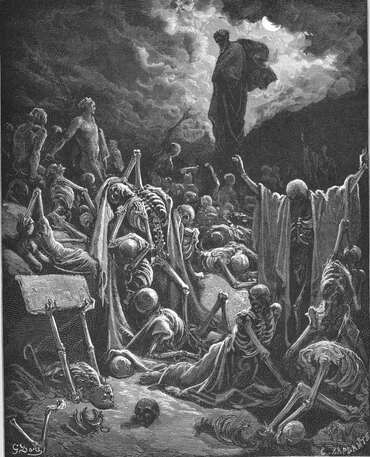Arcana Coelestia #8936
8936. 'And shall sacrifice on it your burnt offerings and your eucharistic offerings' means worship in particular according to each person's state of spiritual life. This is clear from the meaning of 'burnt offerings and sacrifices' as all inward worship in general, and also all the varieties of it in keeping with the different kinds of celestial and spiritual realities that are involved, that is, the different forms of the good of love to the Lord and the different truths of faith in Him, 922, 923, 2165, 2180, 2805, 2807, 2930, 3519, 6405, thus in keeping with every state of spiritual life in particular. This accounts for the institution of so many different kinds of sacrifices; that is, in addition to the daily sacrifices there were those offered on sabbath days, at feasts, new moons, inaugurations, and consecrations, as well as those for all guilt, sin, cleansing, healing, and childbirth. It also accounts for the use according to the occasion of different living creatures, such as oxen, young oxen, lambs, rams, she-goats, and he-goats, each of which meant a different kind of good that belongs to spiritual life, 1823, 2180, 3519.
Bones

Bones are strong and supportive, providing a framework for our bodies and making motion and action possible. They are also the least "alive" part of our bodies, with much of their structure made up of a mineral matrix. As such, they represent a strong, supportive, functional but innately nearly dead part of our spiritual makeup: the "proprium."
The proprium is the part of us that feels life as our own, that perceives our loves and our thoughts as originating within ourselves. If we simply follow the proprium without looking to the Lord, it will lead us to a hellish state, in which we believe ourselves to be all-powerful and deny the existence of the Lord altogether.
Bones, on their own, will go dry, brittle and completely dead. If, however, we acknowledge the Lord and follow him, that's like putting flesh on the bones and being alive. In that case the bones – strong, supportive, protective and as alive as they can be – represent the proprium in relation to intellect, the part of us that perceives our thoughts as our own but turns them toward the Lord.






